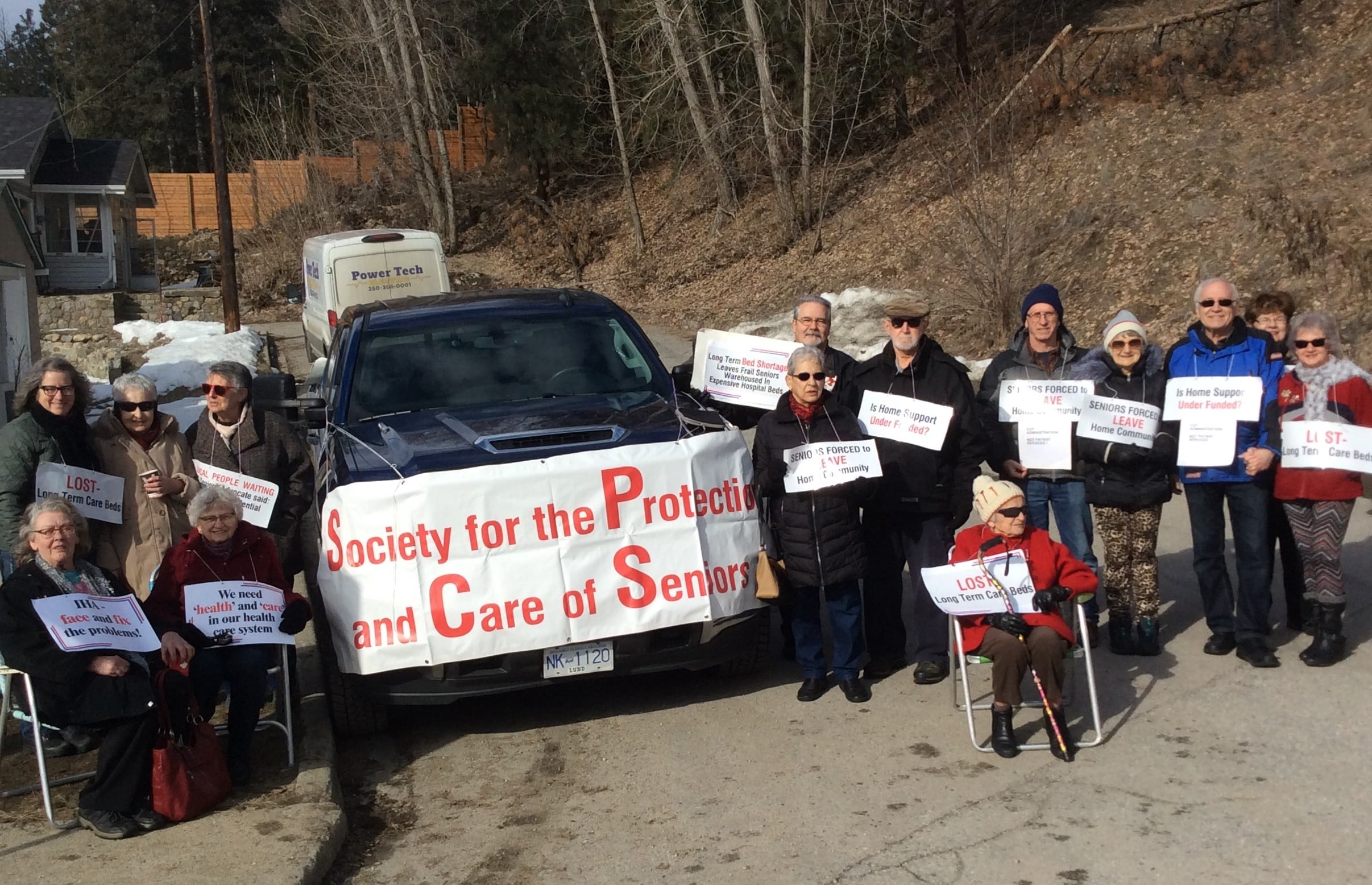Seniors protest lost and inadequate services, residential care
UPDATE: Regarding the shuttle service at the hospital, IHA assures us “that the shuttle service will remain in place while work on the new drop off area at the redeveloped front entrance continues.
“Once completed, the new drop off area will allow people to drop off loved ones right at the entrance. Buses will also use the new area to drop off passengers, freeing up the parking spaces closer to the entrance that are currently out of service for the bus turnaround.”
Original story:
The Society for the Protection and Care of Seniors (SPCS) held their annual Lost Services Vigil at the base of the hill to KBRH on Tuesday, February 18th. This vigil commemorates events in 2006, when the Albo family found no care bed available locally and Frances Albo was separated from her husband andwas transferred to Grand Forks, only to die, alone, two days later.
SPCS maintains that health care services still need improvement, and have provided the following information to back up that opinion.
Locally, in 2002 and 2003 there was a dramatic loss of residential care beds with the closure of Mater Misericordiae and KIRO Manor.
There have been some improvements with the development of Silver City Gardens (supportive housing) and Rosewood Village (subsidized assisted living and complex care). But we are an aging population locally and the support has not kept pace with these increased demands.
The focus of SPCS continues to be addressing the following concerns:
— people on 3rd floor of hospital waiting in less than ideal surroundings for placement, because they cannot return to their own homes;
— Home Support services not meeting the full needs of clients; hours of service provided don’t necessarily meet the need to support clients in their homes and since it is not considered an essential service, cancellations occur;
— Early discharge of seniors from acute care with inadequate publicly-funded Home Support being provided to meet the individual’s safety and health needs
— Home Support is now funded by client on a sliding scale and there is an increased expectation by IHA for seniors to supplement Home Support hours with privately- funded services and increased reliance on family/friends to meet their care needs.
— Shuttle to help people going to hospital entrance (under construction) ends March ‘20 (See update note at top for corrected information)
— First available bed policy when waiting for residential care placement is still resulting in some seniors being moved out of their local home community in to temporary placements in New Denver and Grand Forks, causing hardship of travel for family. In some instances, a frail senior is being moved to a community where they have no family and no connections. On a positive note, Interior Health has been trying to get these individuals into their first-choice facility within 3 months; but the wait time can be longer which causes increased stress for the client and their family. If the first available bed offered is refused, and the client is currently occupying an acute care bed, they will be offered the options of:
a.) accepting the first available bed which was initially refused
b.) going into a privately-paid residential bed which can cost from $3,000 — 5,000.00 a month
c.) returning home to receive some Home Support with family left to pick up the additional 24-hour care and/or hire support from a private- pay agency
d.) threat of being charged over $1,300.00 per day for each additional day spent occupying an acute care bed
For more information about how this group is working to help seniors, go to their website at spcstrail.weebly.com
























